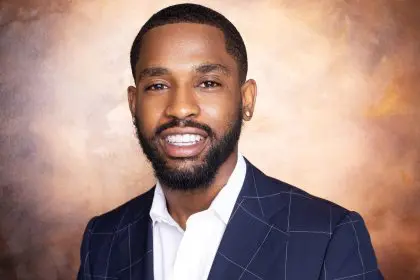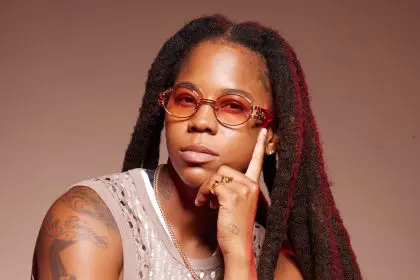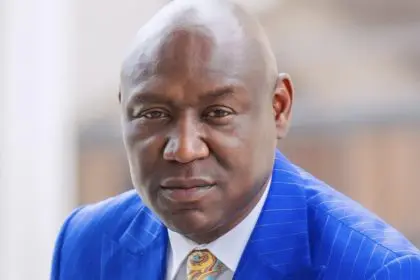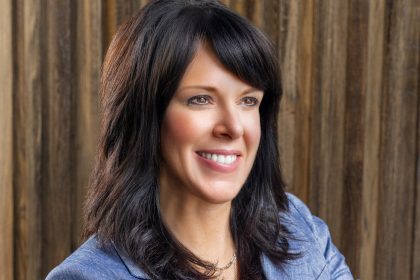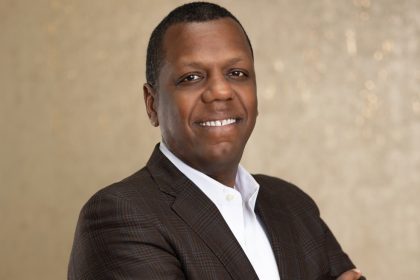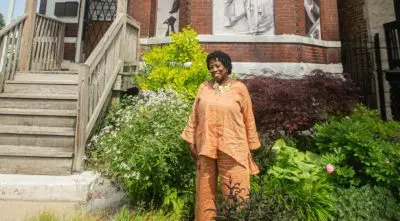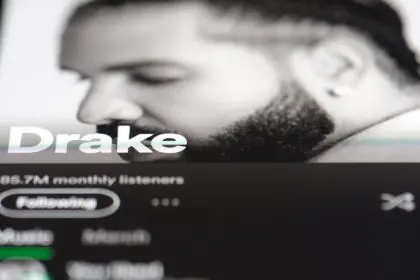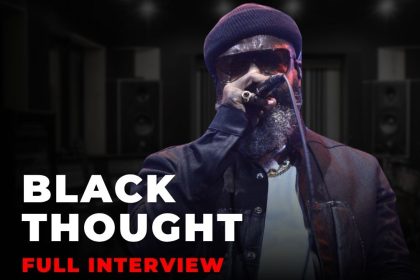In an era marked by a resurgence of social justice movements, Willie “Prophet” Stiggers stands out as a beacon of change within the music industry. As the co-founder, CEO, and president of the Black Music Action Coalition (BMAC), Prophet has dedicated his life to advocating for racial equity and justice. His efforts address systemic issues within the industry and create new opportunities for future generations of Black artists and professionals. With a career steeped in activism and a passion for music, Prophet’s leadership has earned him recognition from prestigious platforms such as Billboard, the Associated Press and The New York Times. In a recent interview on CEO to CEO with Munson Steed, Prophet shared his insights on advocacy, the importance of supporting Black artists, and his vision for the future of the music industry.
[Editor’s note: This is an extended transcription. Some errors may occur.]
Munson Steed: Hey, everybody! This is Munson Steed, and welcome to CEO to CEO, where we bring you the most powerful, influential CEOs who are both advocating for our community and changing the industry each and every day. I am so proud of my brother, who truly has taken what I would consider a liberating spirit and brought it not only from New York City but also to an individual that everybody knows. Like Al Sharpton, who we never imagined would be on a national cable channel, a great training ground, and yet, he himself has been one of the co-founders and a true member of the Black Music Action Coalition. I love that: action coalition. We’re not the sit-back-and-wait coalition. We’re the action. Hey, Prophet. How are you?
Prophet: Peace, brother. How are you doing? I’m well.
Munson Steed: Peace. I’m great. When you think about the value proposition of advocacy, why do young and old, and blind and those with abilities need to understand that we still must be activists and be out here being activists in our community?
Prophet: If we don’t understand that today, more than ever, then we are all tripping. But, particularly, around this particular level of advocacy with BMAC. It was in response to 2020, the greatest corporate injustice the world has ever seen: the killing of George Floyd, Ahmaud Arbery, and Breonna Taylor, kind of forced this country, coupled with COVID, to pause and really take a true assessment of issues that many didn’t think existed. So, unfortunately for some folks, those 9 minutes and 21 seconds of the killing of George Floyd was the first time that they had seen this sort of irrefutable display of racism.
So, some folks are just late to the party, but many of us have been fighting and have advocated all our lives. I started my advocacy at 13 years old. At least, when I realized that at 14, 15 years old, that it was only 30 years or 40 years before the Civil Rights Bill was passed. We are not that removed or that far from a time when legislation was in place that said we were three-fifths of a person, and we are seeing, now, those times show back up again through legislation.
So, if you’re not understanding the need to be an advocate, an activist, and understanding that activism looks very different in different ways, everyone doesn’t need to be on the protest line. Everyone doesn’t need to be shouting with their fists up. We need agents in every sector, in every vertical creating change, and you have to be a part of it to actually disrupt it and rebuild it.
Munson Steed: When you think about music advocacy, what are we missing that most people take for granted? Because I’ve seen you actually address it, that if we don’t advocate for ourselves, we won’t be here in this industry.
Prophet: Well, listen, since the inception of the music industry, it was built on the appropriation of Black culture. That’s the premise of how this whole thing started as an industry. The relationship between the Black creative and the Black artist never changed. Although everything about the way we consume music, the way we produce music, the way we hear music, the way we sell music, all of those things have changed. But the way artists are handled in this industry has not, and the way the Black creators in this industry are handled has not changed.
So, if we don’t advocate for ourselves, you can forget about it. Who will? If we’re not fighting for our legacy artists, if we’re not fighting for those who have given us the soundtracks of our lives, then who will? Our culture is one of the greatest exports that this country uses to create great economies and generational wealth for many people. We have a report coming out this year, co-authored by Kevin Green. In this report, we are going to discuss and really give irrefutable evidence of the amount of wealth brought from Black America through copyright and publishing.
Let’s stop talking from emotions. Let’s stop talking from this sort of vacuum and go to the black and white. Let’s look at what the contracts look like [and] how much money was received or not received. Let’s talk about the fact that rights were being signed over for pennies on the dollar. Let’s talk about the fact that there are so many songs that, if played right now, will bring back memories of listening to your mother and your grandmother in their kitchens cleaning, and when you realize that those families are dead broke and those artists died broke, and those records are still making millions of dollars for other people.
Yeah, we have to advocate for ourselves, brother, and this is the best time, especially when, in 2020, all the major labels and all the publishing companies put up a sign that they stand in solidarity with their Black brothers and sisters. Well, if that’s the case, let’s start redoing and undoing some of the damage that has been done to your Black brothers and sisters within this industry.
Munson Steed: When you think about the role of providing Black labels, you really don’t see LaFace Records anymore. And you have a generation that has never seen that style of entrepreneurship and sponsorship anymore. But you don’t see these record companies really working to finance and build huge entities like that. What can we do? How do we demand that we become those labels that they’re supporting?
Prophet: Well, a couple of factors to that. One, the way in which the major labels discover talent today has changed. So, when you had the heyday of those Black labels that were in partnership with the majors, those labels were being funded to develop and nurture talent in ways only we knew how to. But that’s not how music is dictated today. There aren’t many departments or labels developing talent. They’re chasing an algorithm; they chase the TikTok hit. So, the A&R Departments have been replaced with artists and research.
You have talented people now being replaced with people who can just look at computers and figure out who has a big following or who is tricking the system. Which is why we haven’t had real superstars over the past few years. Great artists, but not superstars like Whitney Houston or Luther Vandross. Those artists will stand the test of time. I think we have cheated ourselves a little bit by the way this new system is going. How do we fix it? That was your question. Well, the Black dollar is more powerful than ever before.
Essence Festival numbers just came in and said that $300 million hit the streets during the Essence Festival downtown. So, I mean, the Black dollar is stronger than ever. So how do we do it? By investing in ourselves. That’s how. Make a conscious decision to spend your money consciously and support initiatives that we say we want. And that’s the real question. We could put a lot of this on ourselves. A lot of things that we are asking for, my question to us is, are we really prepared to step up and do that? Because it’s very simple, we do it for others. So, have we seen enough? Have we experienced enough? Are we living enough of a moment? We can click the button and get all the information we need all the time.
Are we finally at the point where we understand the power of the Black dollar, that we don’t have to sit and wait for a Sony, a Warner or a Universal to tell you that rolling out records is the thing? No, because if we go into your iTunes right now, or where you store your music, you have an eclectic array of music in there. We are not going to listen to the radio for the format any longer. We have broken out of this sort of robotic way of consuming. But, what we haven’t locked into yet is the power of that Black dollar, that we can actually create the next Black superstars.
We can support the music we want to hear; we can change the narrative without the dictates of a major label. The stronghold that the major labels had was around radio and distribution. Those things are no longer the primary medium for music. So, with that new way of moving, we absolutely can ensure and support the creation of LaFaces and labels like Motown and Philadelphia Sound. All those labels gave us the culture we appreciate and have benefited from.
Munson Steed: When you think of executives in the business, label heads, people sitting on the boards of these publicly traded labels, how important are those demands right now for young brothers and sisters to understand that we’ve got to take these positions and demand these positions?
Prophet: The demand happens at the corporate structure, which is where BMAC, since we started, has applied the most pressure. Unfortunately, what has been the most vigilant has been watching how that unfolded. The other way suggests that we applied the pressure and failed. What happened is we exposed what we have seen. At the end of last year, more Black executives were laid off than ever before. There are more Black executives unemployed than there were in 2020 and 2019.
A lot of these commitments that these labels made were three-year commitments. So, people who were senior directors or directors were promoted to EVPs, and when that timeframe [was] over, people were asked to either be demoted or removed. So, the whole thing went backward. We are in a worse situation than we were in 2020 from a Black executive standpoint. We have one Black female chairwoman, Sylvia Rhone, and there are only three chairwomen, period, in the industry. The C-suite, forget about it. It was a complete whitewash from what happened in 2020, a complete dial-back on everything from affirmative action to women’s rights. The industry did the same thing.
So, yes, it’s important. But, the gatekeepers within these buildings need to understand the profitability of a diverse staff. If you want to continue to be a competitor, we’re going to try our best to lean on the influence of our executive leadership council. Those people represent some of the highest-grossing artists in the industry. So, it’s different when you have the biggest grossing artist saying to a Lucian [Grainge], or the chairman of Sony, the chairman of Warner, that based on diversity is how I will decide if I’m renewing with you. No, I’m not okay with you firing a whole department or shutting down a whole label and I continue to do business here as if this is okay.
We are moving into that place. It’s important for young executives to understand that, as we fight on that side to ensure that there’s an industry for them to walk into, BMAC is completely committed to empowering the next generation of young creators and young executives. That’s why we created our pipeline programs, why we went to Tennessee State University and built out a music business accelerator program that’s been running for three years, [and] why we partnered with Live Nation to create BMAC Live, a 10-day intensive designed for young Black kids across the country that want to break into the live space.
This leads to a four-month paid internship and a six-month paid apprenticeship that leads to employment. It’s about not just putting pressure on the major labels to open up those gates but ensuring that the next generation is ready, trained and understands that this is an option. Once they have the information, they realize they can do their own thing and don’t need to go get a job in a corporate structure.
Munson Steed: You created that accelerator, you created the pipeline. Why, Prophet, for those who don’t understand, why would you still [advocate] for somebody other than yourself?
Prophet: Look, here’s the deal. When we began to go around and meet with the major labels, pros, publishing companies, and addressing the issues around a lack of Black and female executives in the C-suite, part of what they talked about was whether or not there was enough talent available. We all know that’s bulls—. One thing that we’re doing, and you’ll get an exclusive here, we are creating a fund in which Black executives will be able to pull from, free of charge, for executive training.
We’ve identified some of the best executive training coaches in the business. Big Jon Platt, who didn’t go to college but is the most powerful Black man in the music industry. He is one of the few Black execs who can actually stroke a real check without permission. He took executive training to get prepared to be a chairman of a global company. We want to make sure that Black executives have access to that and not have to wait to be selected or appointed by their employers. That’s one side.
The second side is ensuring that the next wave of creators or executives coming up through the ranks have all the information they need. Do you know how many executives are in this industry that don’t really understand the industry and give their talents away? If they understood just a little bit about business or how they can monetize their own gifts, you’d have a lot more Black entrepreneurs within this industry. Our goal is to ensure that we reap the financial benefits from our talent that we have given the world. For me, everything that we do, and everything that happened in 2020, is bulls— if we’re not making sure that the next generation is fully equipped with the resources, tools, and access.
Do you know how many young Black kids can’t afford an unpaid internship in California and live in the Bronx? What are you talking about? You don’t tell your mom and dad that you’re going to Cali, and they aren’t paying you. How are you going to live? Opportunity shot. Then that kid in Greenwich, Connecticut, pulls from a trust fund and goes out there to start his life. Two, three years from now, he’s a senior VP at the company. We have to remove those obstacles for our people. That’s why we are out here doing this. It’s not just Prophet; it’s a movement of some of the most powerful executives in the industry across the aisle. White, Black, tall, short, everybody. It’s a powerful movement.
Munson Steed: While you think about the movement, think about how the Grammys places Afrobeats with pop culture topics. How inappropriate or appropriate is it to take something like Afro beats, which would have its own category, its own destination, and put it in the pop category and remove it from its culture?
Prophet: I want to say, last year they started a category for African music. I forget the exact title of it. But, pop music is popular music. What that suggests to me is that the narrative is shifting on what popular music is. I don’t have a problem at all. I want to see Burna Boy go up against Taylor Swift. I want that smoke. I don’t have a problem with that, but I love the fact that the Recording Academy did carve out a category for African music.
The Recording Academy did carve out a category for social change songs. This is under the leadership of the first Black CEO the Recording Academy has had. Now, there’s the Black Music Collective, an entity dedicated to highlighting and showcasing the Black musical experience under this CEO. The secret committees have been eliminated. Membership is up. I’m very inspired by what’s happening at the Recording Academy under Harvey’s leadership.
Munson Steed: Following that up, you also have a new community accepting the fact that Black people have now reclaimed country music. We’re definitely in that lane. Why are they surprised?
Prophet: Well, they’re not. They are a little shocked that we are loud, but they are not surprised. They have deliberately [and] systematically created this divide in country music, kept Black folk out of the conversation, [and] appropriated the culture from the inception of the genre all the way up to the present reality. Country music is one of the last genres still heavily dictated by radio. That system is still heavily regulated by the powers that be. For example, with Beyoncé, we saw what she went through to get her record added.
Now, look at where Shaboozey is at. I support everything that’s happened. But, if they were able to do it for Beyoncé, that lets you know that a button can be pushed. What happened when they gave Beyoncé and Cowboy Carter some love? Six Black artists on one album. Numbers started to stream through the roof on Spotify. Take off these chains around the gates of this thing and allow people to experience the beauty of it, in the true essence from which it came. I’m sorry, but the banjo did not come from the UK. It did not.
Were we here for that? No, but this is where it came from. Let’s get to the essence of it, so Black folk can start enjoying the beauty of it. You think Black people just don’t listen to country music? H— no, we just weren’t going to those festivals. We weren’t going to the lynching mob. We weren’t going to places where there were Confederate flags hung up all around. No.
What happened with streaming during COVID? You saw the Black interest. You saw the audience of country music start showing itself for what it really is during COVID. We were able to see that there is a tremendous Black audience for country music. For those who don’t know, BMAC, in 2022, released a report called, “Three Chords and the Actual Truth: The Manufactured Myth of Country Music and White America.” It’s a 42-page report that chronicles country music from the inception of the genre to present reality.
It gives you great context on how we got here, and, more importantly, what we need to do to ensure that this moment that Beyoncé created internationally becomes the true movement. A movement in which Black Country artists get their shine, get their light, and the Black Country audience gets a chance to enjoy music festivals. Mickey Guyton was at one of our symposiums that we hosted in LA, and she broke down in tears because it was the first time there was an all-Black audience for her to talk about this issue. It became very emotional.
One of the people in the room was Shawn Gee from Live Nation Urban. After the meeting, we had a discussion, and he talked about how much of a fan he is of her. He tried to book her several years back in 2020. We made the deal happen right there. Mickey was on the Essence Fest stage performing with the Roots, crying her eyes out for the first time performing in front of 20,000 Black people. That’s the power of what we’re doing.
Now, Shaboozey is on three or four shows. He just booked Adele for four or five shows. That’s the power we have. Going back to your question about Black labels, what can we do? We can support them.
Munson Steed: Well, brother, I want to thank you for all you continue to give. I want to thank you for demonstrating, at least at this moment, what it is to be a CEO and co-founder of a movement that is not just about social change but mental, physical, emotional, and economic change inside our community and the music industry, which touches every element of our lives.
Prophet: Well, brother, I thank you. I also want to give you your flowers [for] what you have been able to do with rolling out, in terms of having a place for our story to be told and protected. Brothers like you are heroes, and any opportunity that I have to share any moments with you is an honor. So, thank you for all you have done and all you continuously do for our people.
Munson Steed: Thank you, brother.

